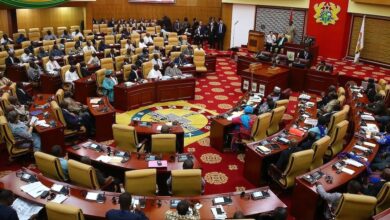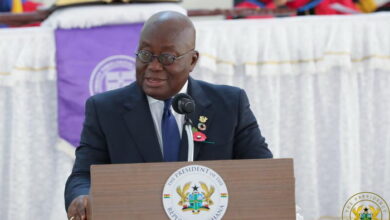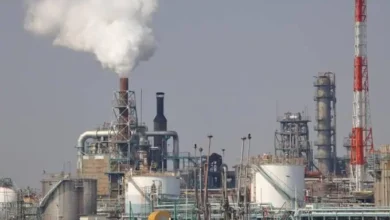Stronger Regulations Needed to Address Environmental and Social Impacts of Mining
Stronger Regulations Needed to Address Environmental and Social Impacts of Mining

- Experts in extractive resource governance are calling for stronger legislation
- The urgency and scale of demand for these minerals risk exacerbating exploitation
- The agency is also working more closely with relevant stakeholders
Experts in extractive resource governance are calling for stronger legislation and best practices to mitigate the environmental and social risks associated with the mining of transition minerals, particularly as Ghana prepares for the commercial extraction of lithium.
The Natural Resource Governance Institute (NRGI), citing the UN Environment Programme, emphasized the dual nature of energy transition minerals.
While these minerals are vital for advancing clean energy and supporting development, their growing demand may lead to exploitation, human rights violations, and severe environmental damage.
“The urgency and scale of demand for these minerals risk exacerbating exploitation, human rights violations, and environmental destruction,” said NRGI, urging the adoption of robust regulatory frameworks to address these challenges.
David Sefa Adjei, an economic analyst at NRGI, highlighted that approximately 40% of critical minerals are located in countries with weak or failing governance systems, where the necessary safeguards may not be in place to prevent harm and ensure that mining benefits local populations.
“More than half of the reserves of transition minerals are on lands where indigenous or peasant communities have recognized or claimed rights,” he added, expressing concern over the environmental damage caused by their extraction, including deforestation, water pollution, and water depletion.
Adjei noted that extracting a single tonne of lithium requires two million liters of water, and with 50% of global copper and lithium production concentrated in water-scarce areas, the implications for local water resources are significant. He further pointed to alarming trends in Ghana, where data from the Forestry Commission reveals that 38 forest reserves no longer exist, and illegal mining (galamsey) continues to devastate water bodies.
He also highlighted that, in Ghana’s Central Region, 60% of water bodies are polluted, largely due to illegal mining activities. He drew parallels with global issues, such as the water crisis in Chile, underlining the urgent need for stronger governance in the mining sector.
In addition to these environmental concerns, Adjei stressed that energy-intensive mining operations contribute significantly to greenhouse gas emissions, leading to biodiversity loss. He also raised concerns about child labor and violations of indigenous rights linked to mining activities.
With a new government set to assume office, Adjei called for effective and binding mechanisms to hold the mining industry, governments, and legislators accountable for the impact on communities and the environment. He emphasized the importance of incorporating the perspectives of resource-rich countries, local communities, and mine workers into government policies and corporate practices throughout the mineral supply chain.
As Ghana awaits the ratification of its first lithium agreement by parliament, Adjei urged collaboration among all stakeholders to address these challenges and maximize the benefits across the mineral value chain.
The discussion on transition minerals and Ghana’s environmental legislation was organized by NRGI and brought together key stakeholders, including state actors, civil society, media, and environmental and mining policy experts. The event aimed to assess the country’s laws and regulations on mining and the environment in light of the growing importance of transition minerals, identify gaps, and recommend solutions.
Ing. Michael Sandow Ali, Director of the Mining Department at the Environmental Protection Agency (EPA), also participated in the dialogue. He acknowledged the challenges that mining critical minerals will pose to environmental sustainability, social responsibility, and economic development.
However, he noted that the EPA has taken steps to address these challenges, such as expanding the agency’s presence across the country, increasing staff numbers, and leveraging satellite imagery and drones for monitoring. The agency is also working more closely with relevant stakeholders, creating a Client Services Unit, and focusing on the Akoben Programme (Environmental Performance Rating & Public Disclosure) to enhance its regulatory effectiveness.
“The Mining Department’s activities are broad and cover a range of issues related to mineral resources, including critical minerals. We collaborate with multiple stakeholders and are constantly seeking innovative solutions to fulfill our core mandate,” Ali stated.





